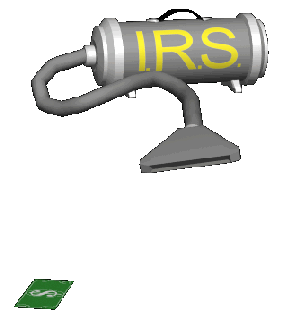Tax Season - Doesn't Have To Mean High Taxes on Investments
But Remember, Don't Forego Good Profit Just To Avoid Taxes
April 8, 2007
By: Jerry Cole - Retirement, Investment

Keep in mind, there are some things you can do to mitigate the tax bite on investments.
We are at the height of the tax season and many of you have already had the displeasure of paying Uncle Sam more than you would have liked. It is especially distasteful to pay on gains you have made from investments. Heck, it was you and not "Uncle" who took the risk, right? And to add to the displeasure, most of the investment dollars were those on which taxes had already been paid!
Well, there are some things you can do to mitigate the tax bite on investments. Keep in mind however, you do not want to forego a good profit just to avoid taxes.
Thanks to the 2003 tax law, long-term capital gains and qualified dividends are taxed at a maximum federal rate of just 15%. Short-term gains, taxable interest and dividends that aren't qualified however, are dunned at ordinary income-tax rates, and that means paying as much as 35% to Uncle Sam.
If your tax bracket is relatively high, municipal bonds, especially those issued in your own state, can be a wise investment. Because of their tax-exempt status, a 4.5% yield from such municipals is equivalent to 6% in a taxable bond in the 25% income bracket.
If you own high yield corporate bonds, they should be in your retirement account where the interest is tax deferred until you withdraw at retirement when you will likely be in a lower tax bracket.
You also have to be aware that mutual funds that are managed can produce capital gains. These gains are usually declared later in the year and you don't want to purchase just before that point and get hit with a capital gains right away. In addition, when investors redeem shares of a mutual fund, the fund manager sometimes has to liquidate holdings to raise cash. This liquidation can also generate capital gains distributions, which are passed on to the remaining investors.
Exchange traded funds, or so-called ETF's are bought and sold on an exchange. So no matter how many other investors sell their shares you don't have to foot the bill. Like traditional funds, ETF's hold baskets of securities and other investments. Rather than get priced once a day like traditional funds, ETF's trade throughout the day, getting priced like stocks.
Giving thought to the tax consequences of your investments can make a substantial difference in the total return. Of course the consequences will vary with the individual. Be sure you place the right type of investment in the appropriate type of account.
Remember - an investor's worst enemy is not the stock market - but oneself.
I invite your questions.
E-Mail Jerry Cole
(The opinions expressed are solely those of the author and not Genworth Financial Securities Corporation.)